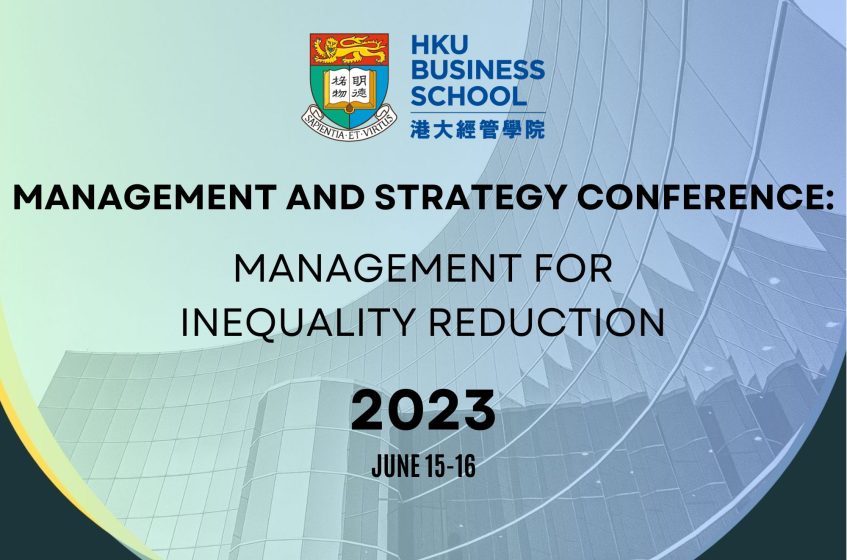
Management for Inequality Reduction
Speaker on 15 June, 2023
Prof. Anthea Zhang
Fayez Sarofim Vanguard Professor of Management
Jones Graduate School of Business
Rice University
Title
Caught Between Female Tokenism And Female Dominance: Examining The Impact Of Female Representation On Evaluations Of Entrepreneurial Projects In The Technology Field
ABSTRACT
It has been well noted that relative to their male counterparts, female entrepreneurs encounter disadvantages in seeking financial resources in the technology field. We examine how the level of female representation in technological projects—token female representation, substantive female representation, vs. no female representation—may affect how female and male evaluators evaluate the projects. We propose that compared to male evaluators, projects with token female representation are more likely to remind female evaluators of their own token status, and such an identity threat may lead them to give lower evaluations. We also propose that compared to female evaluators, projects with substantive female representation are more likely to be viewed by male evaluators as a liability of capability, leading them to give lower evaluations. Conducted in a unique setting wherein panels comprising female and male evaluators rated funding applications, our study supports these predictions. Moreover, we find that female evaluators’ lower evaluations of projects with token female representation are mitigated if the evaluators have a non-tech background, the entrepreneurs present their projects with languages consistent with a muscular style, or the ventures have received external investment. Our research can make important contributions to the literature on technological entrepreneurship and gender research.
Speaker on 16 June 2023
Prof. Amy Hillman
Professor & Rusty Lyon Chair in Strategy
W. P. Carey Management and Entrepreneurship
Arizona State University
Title
Help the poor? Governing corporate investment in poverty alleviation
ABSTRACT
Today both scholars and practitioners increasingly pay attention to a firm’s role in tackling grand societal challenges. We explore why and when some firms invest in solving grand challenges by specifically examining the role of governance in poverty alleviation. Poverty alleviation is an important societal challenge notable in its distal nature from the day-to-day activities of the firm. Focusing on a key institutional infrastructure, governments, we show two external governance mechanisms—local political pressure and local extractive power—important to our understanding of a firm’s investments in poverty alleviation. We also explore the role of two important internal governance mechanisms—firm ownership and political connections—and find interesting results regarding the level of ownership and connections and a firm’s efforts to address poverty alleviation. We build our understanding of the connection between institutional theory and corporate governance and develop the nexus between internal (ownership and political connections) and external (political pressure and extractive power) governance mechanisms as an important part of a firm’s commitment to this grand challenge.







